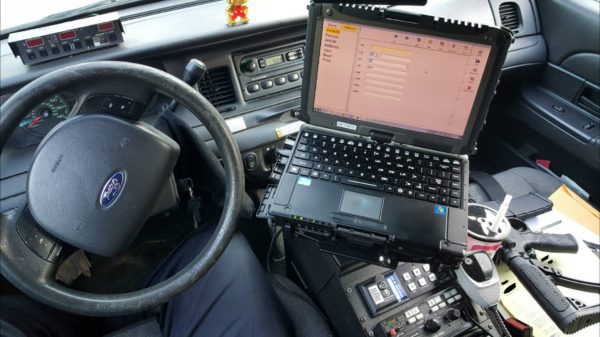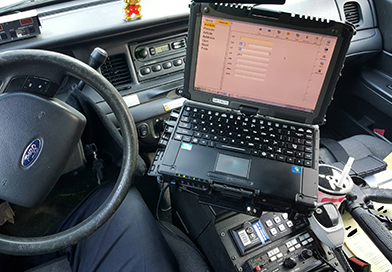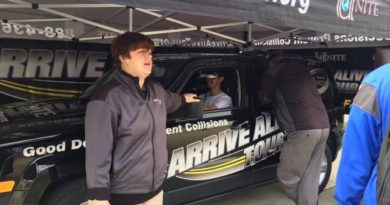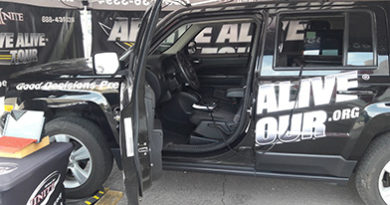Police Hand Out Tickets Daily On It, But Are They Guilty Of Distracted Driving Themselves?
Police officers have seen more and more technology added to their patrol cars, which is nice in helping them stop criminals. However, does this technology lead cops into breaking the law themselves, as they are distracted driving? Most states have implemented a distracted driving law to help keep the roads safer, but it seems like cops and this technology is causing even more havoc.

With this increase in technology, law enforcement has the ability to get information more quickly, respond to scenes more efficiently and even allows more time on patrol. There are other benefits to the technology, but it is ironic. These officers are tasked with enforcing distracted driving laws in the country, yet they find themselves distracted by the technology in their own cars.
Several years ago, Dr. Stephen James, assistant research professor at Washington State University, and a team of researchers received funding to study the issue of law enforcement safety behind the wheel. According to Dr. James, in a 15-year span, more cops were killed by vehicle collisions than by assaults. Because of that, they wanted to research what was going on.
For this study, James and his colleague Dr. Bryan Vila brought 80 police officers into their lab for six hours at a time on either two or four occasions. For the two visits, the cops came rested one time and fatigued the other time, as they came in immediately after their last shift. The officers would be put on “patrol” using a driving simulator. From there, they were tasked with following a “lead” vehicle, which was traveling at 55 mph, keeping no farther than 100 feet away. During one of the two drives, the officers were asked to interact with a touch screen in the simulator. They would receive a “task” on the screen, which would require them to scroll up and down to find the correct line of text. They were measured for lane deviation, lane departures, braking latency, following distance and collisions during these simulations.
Basically, the officers drover much worse when faced with the distracted driving issues. Dr. James said, “We found that while they are very good at manipulating their other technologies in the cockpit of the patrol car, their driving is still being impaired by the distraction. The impact that distraction has on our driving outweighs drowsy driving and DUI.”
To help combat this issue, new training techniques are being used to help the cops learn how to not get fully distracted behind the wheel. Also, new technology is being placed into patrol cars, which allow them to not use certain aspects of the cockpit while driving. This should help in lowering the risks of distracted driving for cops.
Bring the Arrive Alive Tour to your area. For more information or details on the drinking and distracted driving simulator program, contact us here!
[Photo by Imgur]





You must log in to post a comment.